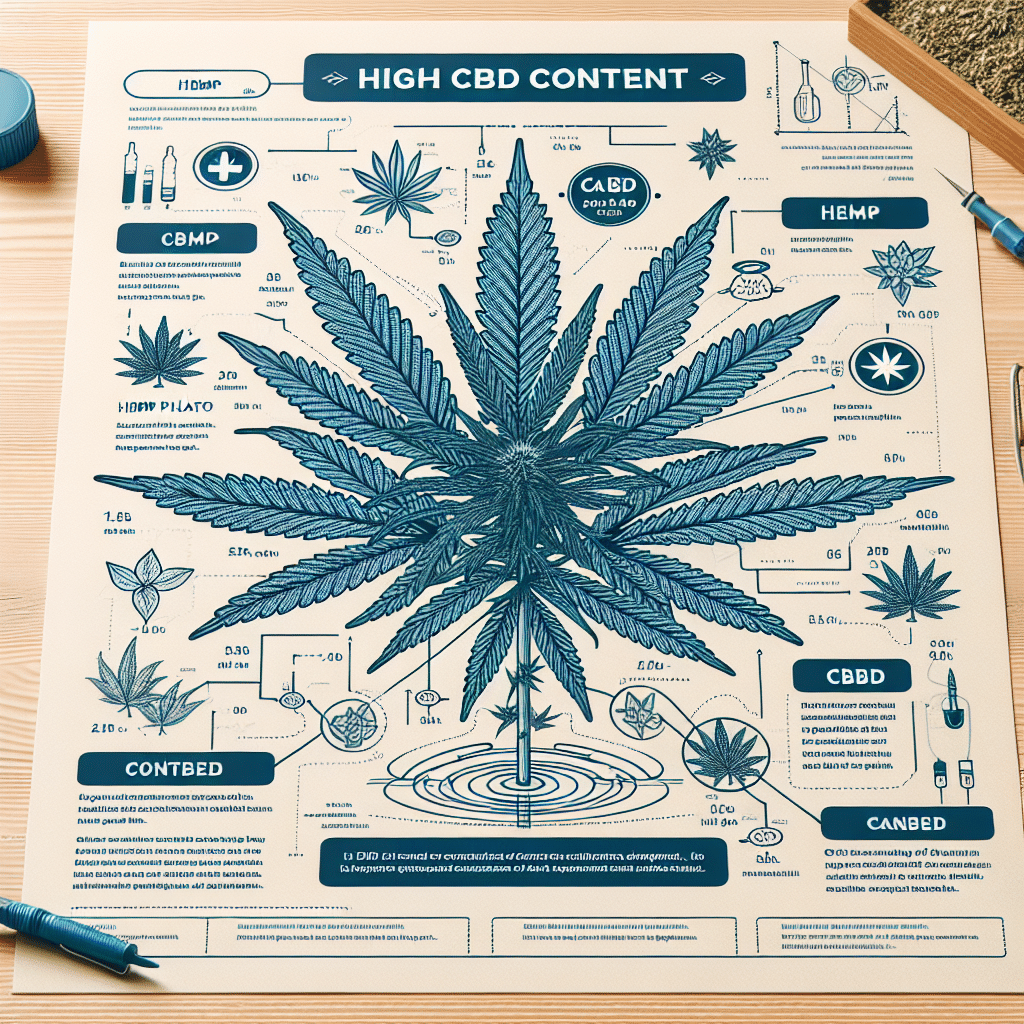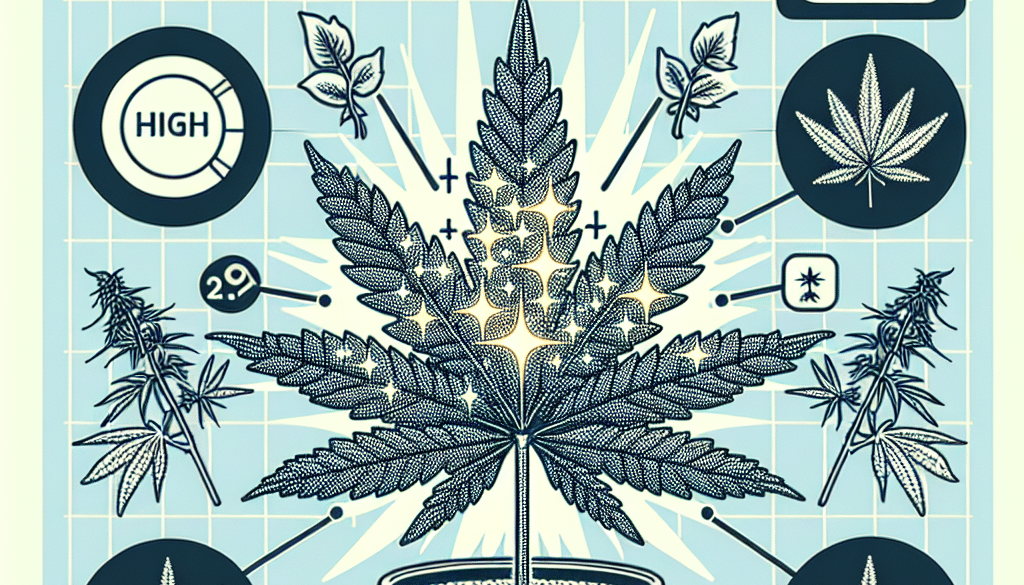Does Hemp Have A Lot Of Cbd?
-
Table of Contents
- Hemp CBD Content: Understanding the Potential of Hemp-Derived Cannabidiol
- Understanding Hemp and CBD
- Hemp’s CBD Content: How Much CBD Does Hemp Actually Have?
- Case Studies and Research on Hemp CBD
- Implications for Consumers and the Industry
- Conclusion: The Potential of Hemp-Derived CBD
- Explore ETprotein’s Plant-Based Protein Offerings
Hemp CBD Content: Understanding the Potential of Hemp-Derived Cannabidiol

The cannabis plant has been at the center of a significant amount of research, debate, and interest due to its complex chemical makeup and potential therapeutic benefits. One of the primary compounds of interest is cannabidiol (CBD), a non-psychoactive cannabinoid that has been linked to various health benefits. Hemp, a variety of the Cannabis sativa plant species, is often grown for its CBD content. But does hemp have a lot of CBD? This article delves into the CBD content of hemp and its implications for consumers and the industry.
Understanding Hemp and CBD
Hemp is a variety of the Cannabis sativa plant that is cultivated primarily for industrial use. It has been used for thousands of years to make a wide range of products, including textiles, paper, and building materials. Unlike marijuana, another variety of Cannabis sativa, hemp contains low levels of tetrahydrocannabinol (THC), the compound responsible for the psychoactive effects associated with cannabis use.
CBD is one of over a hundred cannabinoids found in cannabis plants. It has gained popularity due to its potential therapeutic properties, which include anti-inflammatory, analgesic, and anxiolytic effects. CBD can be extracted from both marijuana and hemp plants, but legal restrictions often make hemp-derived CBD more accessible and widely used.
Hemp’s CBD Content: How Much CBD Does Hemp Actually Have?
The CBD content in hemp can vary significantly depending on several factors, including the strain of hemp, cultivation practices, and environmental conditions. Generally, hemp plants are bred and grown to maximize CBD content while keeping THC levels below the legal threshold of 0.3%.
- Strains: Some hemp strains are genetically predisposed to have higher CBD content. Breeders have developed specific strains that can yield CBD concentrations of 10-20% or higher.
- Cultivation: The way hemp is grown can also impact its CBD content. Factors such as soil quality, light exposure, and harvesting techniques can influence the cannabinoid profile of the plant.
- Extraction: The method used to extract CBD from hemp plants can affect the purity and concentration of the final product. CO2 extraction, for example, is known for producing high-quality, high-concentration CBD extracts.
While hemp does contain CBD, it’s important to note that not all hemp plants are created equal when it comes to cannabinoid content. The CBD levels in hemp can range from negligible amounts in industrial hemp grown for fiber to substantial quantities in specially cultivated high-CBD strains.
Case Studies and Research on Hemp CBD
Research into the CBD content of hemp has been growing alongside the interest in CBD’s therapeutic potential. Studies have shown that certain hemp strains can produce significant amounts of CBD, making them ideal for producing CBD oil and other CBD products.
For example, a study published in the “Journal of Agricultural and Food Chemistry” analyzed the cannabinoid content of different hemp strains and found considerable variation in CBD levels. Some strains contained CBD concentrations that were competitive with traditional marijuana strains used for medical CBD production.
Another study conducted by the University of Kentucky’s Department of Plant and Soil Sciences aimed to optimize growing conditions for hemp to maximize CBD yield. The research highlighted the importance of selective breeding and controlled agricultural practices in producing high-CBD hemp crops.
Implications for Consumers and the Industry
The varying CBD content in hemp has significant implications for consumers and the industry. Consumers seeking CBD products for health and wellness purposes need to be aware of the source and quality of the CBD they purchase. It’s essential to choose products from reputable companies that provide third-party lab testing results to verify the CBD content and purity.
For the industry, the potential of high-CBD hemp strains represents an opportunity for growth and innovation. As demand for CBD continues to rise, the cultivation of hemp with high CBD content could become a primary focus for farmers and producers. This shift could lead to more efficient production methods, higher-quality products, and increased accessibility for consumers.
Conclusion: The Potential of Hemp-Derived CBD
In conclusion, while not all hemp is rich in CBD, certain strains and cultivation methods can result in hemp plants with substantial CBD content. The potential of hemp-derived CBD is vast, with implications for therapeutic applications, consumer products, and the agricultural industry. As research continues to uncover the benefits and best practices for cultivating high-CBD hemp, we can expect to see a growing market for hemp-derived CBD products that are both effective and reliable.
For those interested in plant-based nutrition and supplements, ETprotein offers a range of high-quality protein products that complement a healthy lifestyle. Their organic vegan proteins, including rice, pea, and various seed proteins, are an excellent addition to any diet, especially for those looking to increase their protein intake with non-GMO, allergen-free options.
Explore ETprotein’s Plant-Based Protein Offerings
ETprotein’s commitment to quality and purity extends to their protein products, making them a trusted choice for consumers seeking plant-based nutritional solutions. Whether you’re looking to enhance your fitness regimen, support weight management, or simply improve your overall health, ETprotein’s range of organic proteins can help you achieve your goals.
About ETprotein:
ETprotein, a reputable protein and L-(+)-Ergothioneine (EGT) Chinese factory manufacturer and supplier, is renowned for producing, stocking, exporting, and delivering the highest quality organic bulk vegan proteins and L-(+)-Ergothioneine. They include Organic rice protein, clear rice protein, pea protein, clear pea protein, watermelon seed protein, pumpkin seed protein, sunflower seed protein, mung bean protein, peanut protein, and L-(+)-Ergothioneine EGT Pharmaceutical grade, L-(+)-Ergothioneine EGT food grade, L-(+)-Ergothioneine EGT cosmetic grade, L-(+)-Ergothioneine EGT reference grade and L-(+)-Ergothioneine EGT standard. Their offerings, characterized by a neutral taste, non-GMO, allergen-free attributes, with L-(+)-Ergothioneine purity over 98%, 99%, cater to a diverse range of industries. They serve nutraceutical, pharmaceutical, cosmeceutical, veterinary, as well as food and beverage finished product distributors, traders, and manufacturers across Europe, USA, Canada, Australia, Thailand, Japan, Korea, Brazil, and Chile, among others.
ETprotein specialization includes exporting and delivering tailor-made protein powder and finished nutritional supplements. Their extensive product range covers sectors like Food and Beverage, Sports Nutrition, Weight Management, Dietary Supplements, Health and Wellness Products, and Infant Formula, ensuring comprehensive solutions to meet all your protein needs.
As a trusted company by leading global food and beverage brands and Fortune 500 companies, ETprotein reinforces China’s reputation in the global arena. For more information or to sample their products, please contact them and email sales(at)ETprotein.com today.












